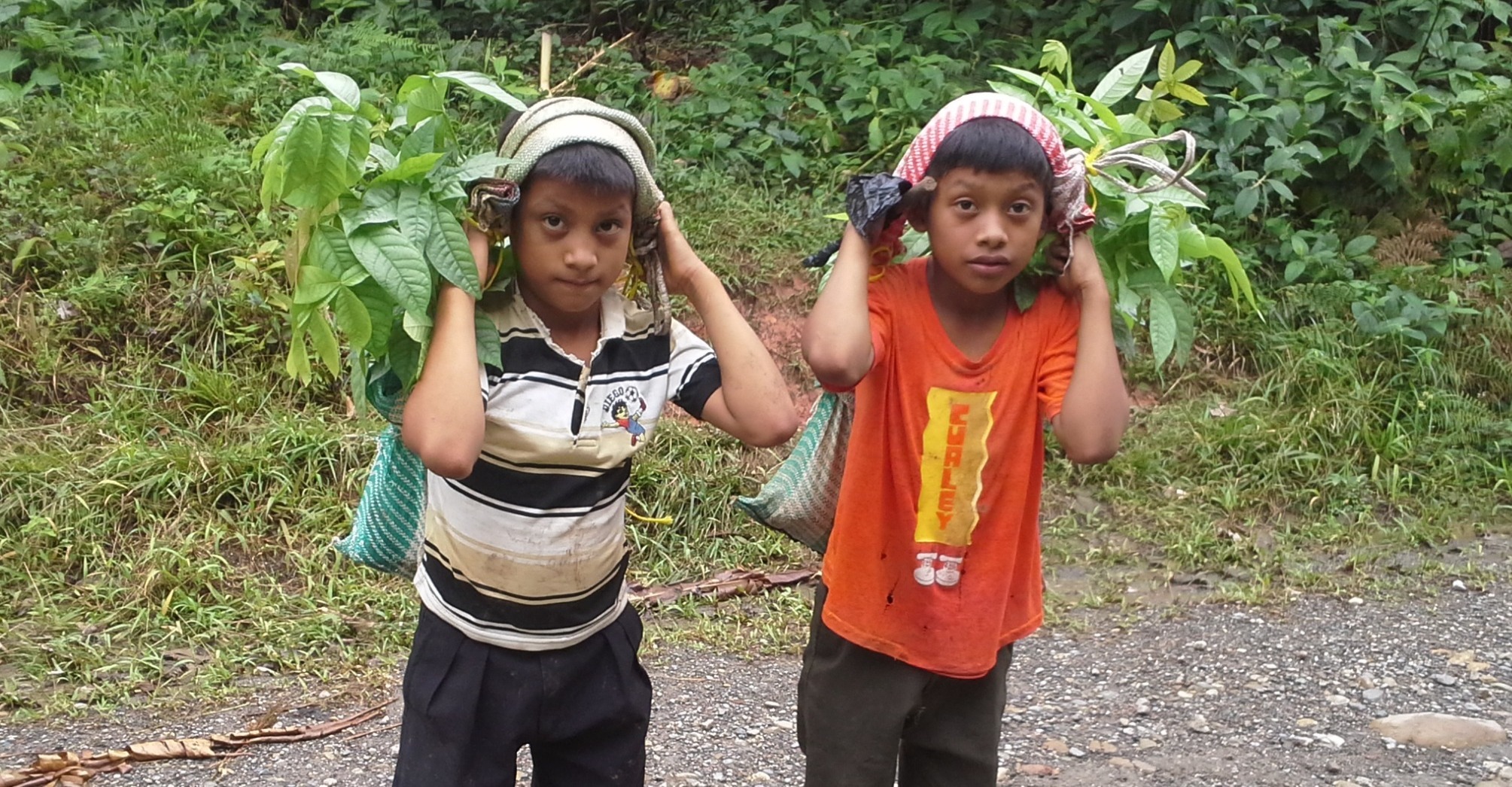
GUATEMALA
This for me has been a great change in my life. I thank EcoLogic's field technicians who make a great effort to reach our community to motivate, implement, and train the project partners.
-Doña María Juan, Community member, San Juan Ixcan, Quiche

What We Do
With the project activities we seek:
Sustainable Agriculture and Economic Incentives: To provide community opportunities to generate income in a sustainable way, EcoLogic provides training to local people in beekeeping and cardamom farming and helps them to access incentives-based conservation programs.
Capacity Building: EcoLogic builds community capacity by supporting local water councils and training villagers to monitor forests.
Community-led Forest Restoration and Healthy Homes: In addition, we help protect and restore the ecosystem through reforestation, the provision of fuel-efficient stoves, and sustainable agriculture training.
Map

Ethnic Groups:
Population Size:
Languages:
Economic Activites:
Poverty Rate:
Project Area:
Ecosystem:
Endangered Species:
15,000
Mayan, Mestizo
Q'eqchi, K'iche, Kanjobal, Mam, Ixil, Spanish
Farming, timber, palm oil plantations
77%
22,775 hectares
Tropical humid forest
Lowland paca, tapir, toucan
Key Facts
Stats

Video
Partner

MFN is an alliance of 6 municipalities in the departments of Quiché and Huehuetenango, Guatemala that works to encourage the protection and sustainable management of natural resources in the region. Its general assembly is made up of the members of the 6 municipal councils, a board composed of 6 mayors, who are the legal representatives of each municipality. Each municipality in turn has a Municipal Development Council (known as COMUDE) integrated by municipal authorities, representatives of institutions, and representatives of each community through the Community Development Councils (known as COCODES).
Indigenous Peoples for Thriving Ecosystems in Northern Guatemala
Oil-palm plantations, cattle ranching, and human settlements are putting intense pressure on the standing forest in Ixcán and threatening the health of local watersheds. In addition, infrastructure development—including hydroelectric dams, highway construction, and logging operations—are increasing social tensions and straining communities’ trust in the government while exhausting the local natural resource base. Climate change has exacerbated these issues, leading to droughts and mudslides that increase crop losses, hunger, and poverty.


.png)